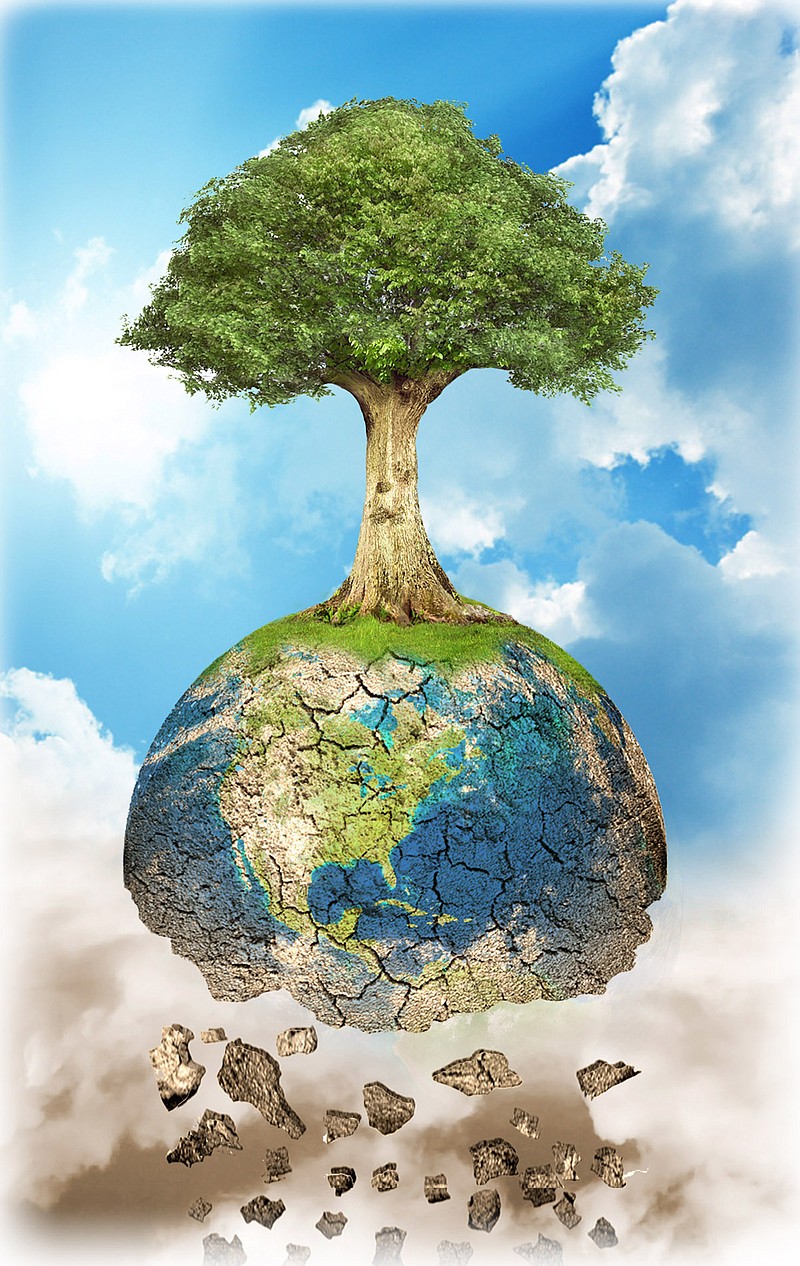By the end of the year, the pandemic-stalled economy is projected to have generated 5.9 billion metric tons of emissions - about the same level as 1983, according to The Washington Post's reporting on the study.
As a result, the United States has been inadvertently pushed back on track to meet the commitments the Obama administration made at the Paris climate agreement in December 2015, despite the fact the Trump administration pulled the country out of the pact.
Before 2020, the United States had fallen badly behind its scheduled targets under the accord.
But climate change itself took back some of our gains.
That 9% fall was offset by the year's unusually extreme forest fires that swept the West Coast and Rocky Mountains - driven by extreme heat and drought and wind. As of mid-September, those fires had scorched 8.2 million acres (about 12,812 square miles) of land, razed over 10,000 buildings and killed at least 37 people, all the while pumping carbon dioxide and other pollution into the air, bringing our expected net emissions to 6.4% lower that normal.
The BloombergNEF study says that without the impact of the coronavirus, greenhouse gas emissions this year would have been only 1 percent lower than 2019. But the study's analysts also said the effects of the pandemic and economic disruption would linger through 2021 and emissions in the coming year could still be 5 percent lower than 2019 emissions.
That level could become a "new normal" if people change driving habits and the power sector continues to shift to renewable power, Thomas Rowlands-Rees, BloombergNEF's head of North American research, told The Post.
And Ethan Zindler, BloombergNEF's head of the Americas, added: "The amount of pain we've had to go through for a relatively modest drop shows that there needs to be more smart policy and smart thinking about emissions. The emphasis has to be not on how to reduce demand, but how to make supply more green."
That's where a new president and administration for the United States comes in. Joe Biden will be required to work to slow the spread of COVID-19 even as he pushes to curb our reliance on energy sources that drive up carbon emissions and speed the extremes of climate change.
It's a steep mountain, but we believe Biden can climb and chew gum at the same time. So can Americans. We've done it here in Chattanooga.
Biden has pledged that on his first day in office he will reenter the U.S. in the Paris accord.
The BloombergNEF study warns that the United states would still "need stronger policy commitments outside of the power sector in order to hit the 2025 target."
Other energy experts agree.
Kevin Book, a managing director and head of energy research at ClearView Energy Partners, put the pandemic's emissions windfall into perspective this way, telling The Post:
"You can get in shape or you can starve. Either way you lose weight. The point of energy is to go places, do things, make things, enjoy things and we haven't been going, doing, making or enjoying nearly as much.
"This is the way it feels to cut emissions in the worst way possible," he said, adding that cutting emissions through a worldwide pandemic "still isn't enough to change the atmospheric stock of carbon."
In other words, we've lost some carbon emission weight but we're still weakened by the saggy flab that only a change of habit, consistent hard work, push-ups and time will tone.
"Like all major crises, there is a chance to turn this temporary downturn in emissions to a more permanent one by making investments and changing policy, but it won't just happen on its own," Sarah Ladislaw, director of the Energy Security and Climate Change Program at the Center for Strategic and International Studies, told The Post in an email.
It will take what she called "a systematic and complete overhaul of our energy system."
Americans must hold Joe Biden and his administration to their promise of being "the climate administration."
Time is running out, and it really is now or never.
